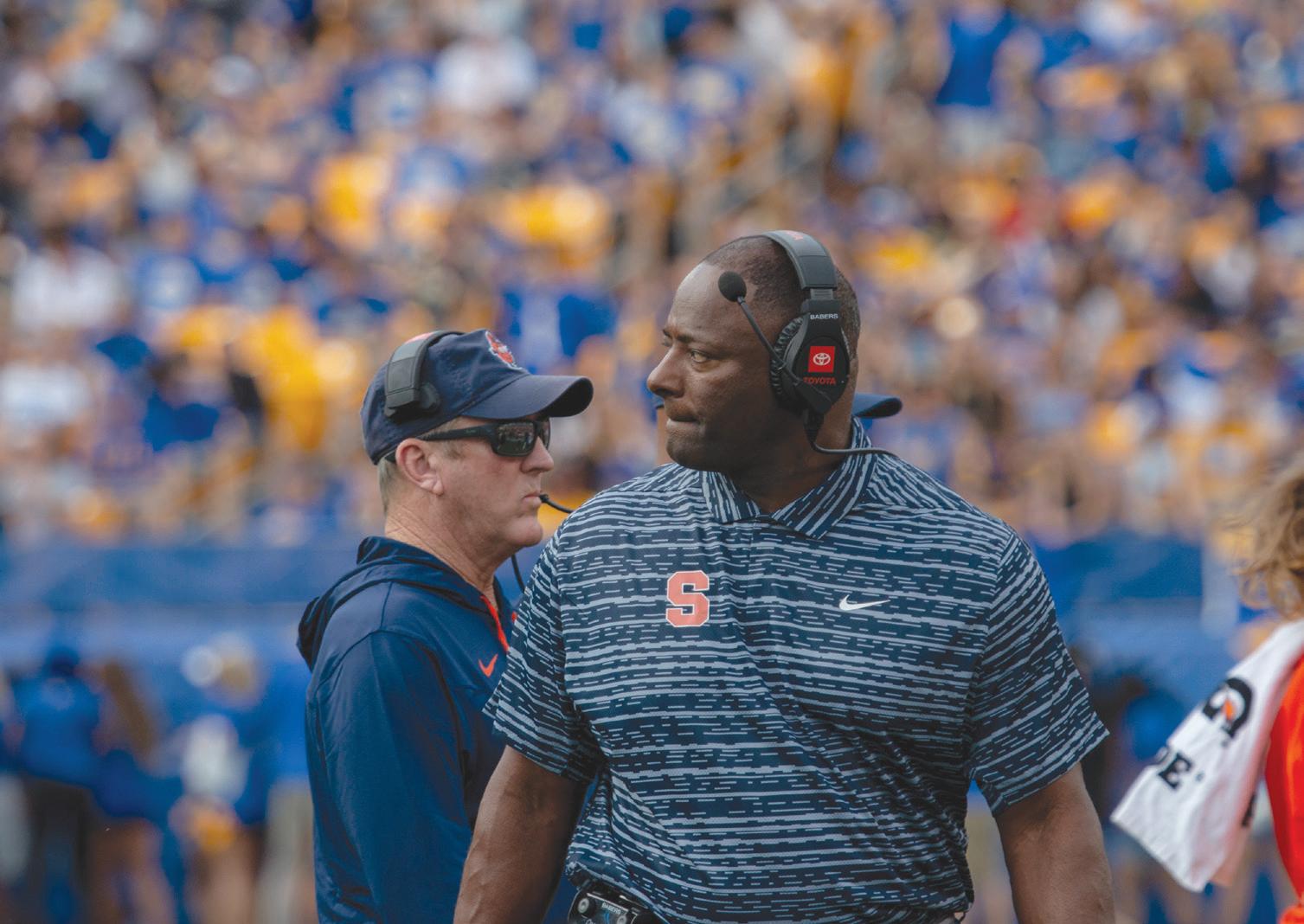
1 minute read
LACROSSE GUIDE 2023 ENERGIZED ‘Here to stay’
from Feb. 2, 2023
By Jana Seal news editor
At the start of the spring semester, Syracuse University’s Center for Teaching and Learning Excellence disseminated a resource document for professors on artificial intelligence in academics. While making their spring syllabi, some faculty said they were unsure about how to address the opportunities for cheating and plagiarism following the introduction of ChatGPT in November 2022.
Advertisement
ChatGPT, standing for Generative Pre-training Transformer, is a chatbot trained on 570GB of Internet data – including Wikipedia, webtexts and books – to produce written responses to user-submitted queries. The OpenAI-created bot is built from GPT 3.5, which Jing Lei, SU School of Education interim associate dean for academic affairs, referred to as a
ILLUSTRATION BY EMMA LEE CONTRIBUTING ILLUSTRATOR
How do we prepare our students to be able to successfully live, work and participate, as a fully functional and competent digital citizen? We cannot prepare our students to work for yesterday.
Bei Yu su professor and director of information science and technology ph.d. program member of the same technology family that shares parts of their language model.
Now, responding to newfound customized access to automatically-generated data, SU professors are navigating ways to use ChatGPT as a tool to enhance learning and as something that presents questions about academic integrity.
For retired SU professor and plagiarism expert Rebecca Howard, the tool’s potential in education outweighs any plagiarism or cheating concerns it might present. She pointed to previous technological advancements in the 1990s like the internet and Wikipedia, which, at the time, sparked similar panics over cheating and dishonesty.
“People were forbidding their students to get on the internet, which is just hilarious to think about,” see chatgpt page 3









